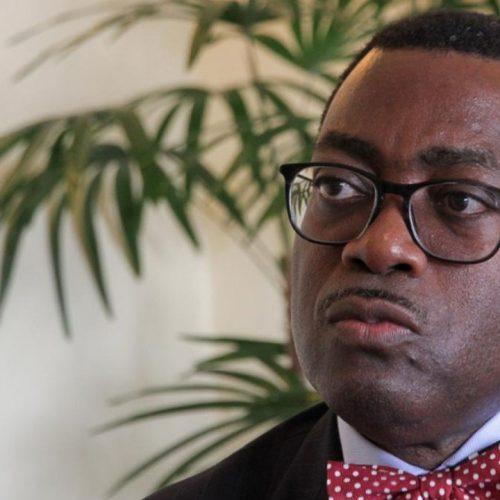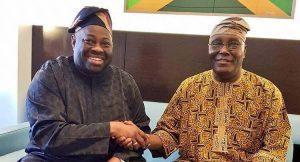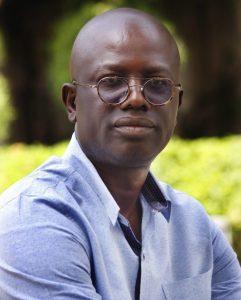One of the drawbacks of being in government in Nigeria is that you are daily occupied with pedestrians and you may have little or no time to pursue truly important objectives. Your journey may be hectic and time-consuming, but in fact, you are only going round in circles.
If you are not careful, four years will pass without you being able to point at any concrete achievement.
Nothing tangible can be achieved if action is not preceded by deliberate thought. Therefore, we need to congratulate President Bola Ahmed Tinubu and his economic team for putting forward Budget 2024, the document that would guide federal spending in the coming year.
From that proposal, the Federal Government might be spending N27 trillion in the coming year. The Federal Government will spend N8.25 trillion in servicing the country’s debts. We have already consumed so much of the future, thanks to our past leaders.
There are problems that are peculiar to Nigeria and Nigerians that would affect the implementation of any national plan, including the budget. In the past, such a budget was part of a national plan of four years, and always guided by certain objectives and philosophy. It would be clear from the National Plan where the country was headed in four years.
The 36 states were also made to submit their plans as part of the national plan. No one is sure now what obtains, whether there is any such national plan or whether we can predict where we are heading. The future for us, remains a forest of the unknown.
The 500 BC Chinese philosopher, Confucius, said: “If your plan is for one year, plant rice.If your plan is for 10 years, plant trees. If your plan is for 100 years, educate your children.”
At the end of the Second World War, Japan was devastated. It was the only country in the world to have been attacked by atomic bombs, which devastated two of its largest cities, Hiroshima and Nagasaki, killing millions.

For the first time in its almost 4,000 years of history, Japan was placed under foreign occupation and American General, Douglas George MacArthur, became the head of the military government from 1945 to 1951.
The Japanese leadership realised that for the nation to rise again, it had to focus on national planning that would promote education, industrialisation and self-reliance. Today, Japan is the third economic power in the world after the United States and China.
Japan has a land area of 377,975 square kilometres. Nigeria has a land size of 923,769 square kilometres. In 1960, the Japanese population was about 95 million. The Nigerian population in 1960 was about 45 million. In 2023, the Japanese population is 125.5 million.
The Nigerian population is estimated at 220 million. In 63 years, we have added an additional 175 million more into the Nigerian population. The Japanese in the same period have added 30.5 million more.
It is clear that Nigeria has fundamental problems, which the government of President Tinubu inherited. Nigeria is a classic example of the coming Malthusian nightmare. If the population remains unchecked and it is growing in the current geometric rate, in 20 years’ time, our population would be about 450 million. The world is not created to accommodate an infinite number of people. The resources to do that are simply not enough.
We cannot expand our territory, but we can control our population growth before it is too late. At the current growth rate, in 20 years’ time, Lagos population would be about 50 million. I pity the Governor of Lagos State of 2043! The arithmetic is clear. Once the population continues to outstrip the Gross Domestic Product, the result would be poverty on an industrial scale.
At the end of the Second World War, the American government under President Harry Truman decided to help Europe and Japan to revive their industrial capacity. General George Marshall, the American Secretary of State (Foreign Minister), had devised a plan to give huge grants to these countries to revive their capacities in order to stem uncontrolled immigration to the United States.
The scheme, known to history as the Marshall Plan, worked perfectly and within 20 years, Europe and Japanhad become again, the leading lights of the industrialised world. But no one gave Marshall Plan to the defunct Soviet Union or China, but they also rose. No one is going to give any Marshall Plan to Africa. We have to rise on our inner strength as the Chinese did.
Steve Biko, one of the heroes of South African struggle against apartheid, in a moment of deep reflection, declared: “Blackman, you are on your own.”
Nigeria is the hope of the Blackman. We have the duty and the destiny to remake the image of Black people all over the world as the Japanese and Chinese remade the image of the Asians. We have the land. We have the people and we have the resources.
The Nigerian leadership should concentrate on building the people, and then, the people would build the land. I know that there are many things that can be done, but I would suggest only some areas to be incorporated into our National Development Plan. One major area is manufacturing and industry.
The government should take keen interest in industrial growth, because industry creates jobs and wealth. This is an area Nigerians have shown their mettle and capacity.
Since 1999, many Nigerian elected leaders and political appointees have traversed the seven seas claiming they were looking for foreign investors. Hardly is there any governor that has not visited China, perhaps, Nigeria’s most important trading partner now. Yet most of the big industries in Nigeria today are made in Nigeria. Today, the Dangote Cement factory in Obajana, Kogi State, is the largest single industry in Africa. In the past, the Nigerian Railway Corporation was the largest employer of labour after the Federal Government. Today, that title has devolved to the Dangote Group, a conglomerate, made in Nigeria, that has become the largest in West Africa.
We have seen, therefore, despite the narration of the Japa generation, that this land is fertile and can sustain economic growth and industry.
Among the seven leading companies on the Nigerian Stock Exchange; Dangote Cement, MTN, BUA Foods, BUA Cement, Zenith Bank, GTCO, Seplat Energy, only MTN is not of Nigerian provenance. Out of the leading companies in Nigeria, at least seven are of Nigerian origin and provenance. We have seen how the emergence of Airpeace and Ibom Air has revolutionalise air travel in Nigeria.
The government should create policies that would create other Dangotes to dominate and expand other aspect of our national life instead of us waiting for foreign investors to develop our country. Foreign investments may come, but the soil must be fertile for the native entrepreneurs first.
We have seen our youths trooping to the same countries, paying their own fare, to work where their ancestors were led in chains to work as slaves in the 18th and 19th centuries. In contrast, when the communist government of China were sending Chinese to the United States in the 1970s and ‘80s, it was for them to attend the best American universities and bring the magic of knowledge home. The investments have more than paid-off.
The journey ahead would be lonely, because no one would help us and we have to travel alone. In 1956, Queen Elizabeth II, then the Queen of Nigeria, paid an official visit to the country. She was hosted in Ibadan by the Premier, Chief Obafemi Awolowo.
To commemorate the visit, the Western Region government decided to build the dual-carriage Queen Elizabeth Road, Ibadan, between Mokola and the regional secretariat. It was the first dual-carriage road in Nigeria. It was built by a local contractor, T.A. Oni and Sons. Today, if such a road is to be built, our politicians would invite the Chinese!
The Federal Government has budgeted N27trillion for 2024. We await the budgets of the remaining 36 governments. What is important is that this humongous sum we are hearing about should not be used to generate more poverty by promoting the industries of other countries. It should be used to promote Nigerian enterprises so that our youths can find work to do.
Let us grow our own food, wear our own cloth, drive our own cars and use our own furniture. Some years ago, Dr Akinwumi Adesina, the Minister of Agriculture, introduced to Nigerians bread made from cassava. Yet this country continues to spend billions of dollars every year to import wheat grown by American farmers to feed our appetite for bread, spaghetti, indomie, cake and other wheat-based food.
There is no need to lament. There is the need to take immediate action. President Tinubu and his team should take deliberate steps to ensure that we also grow people who can dominate the years ahead. For a country of 220 million, one Dangote is not enough.
Copyright © 2023 Guardian Newspapers. All Rights Reserved.























